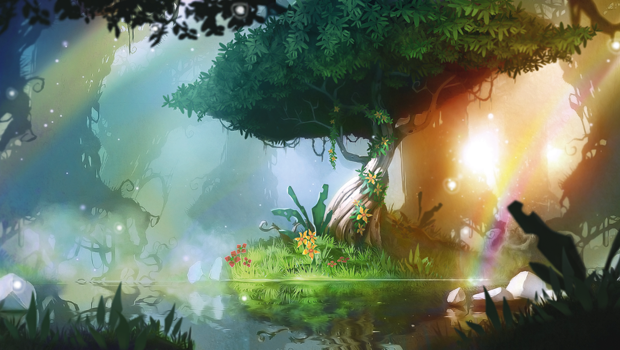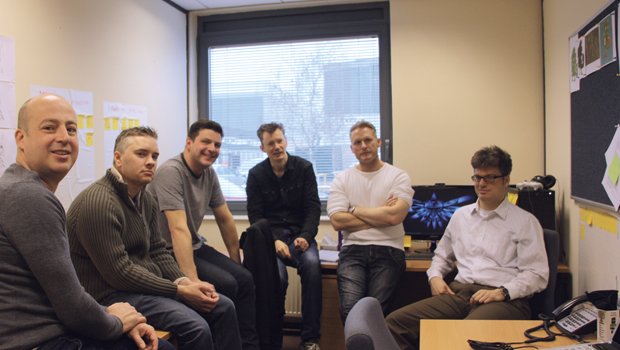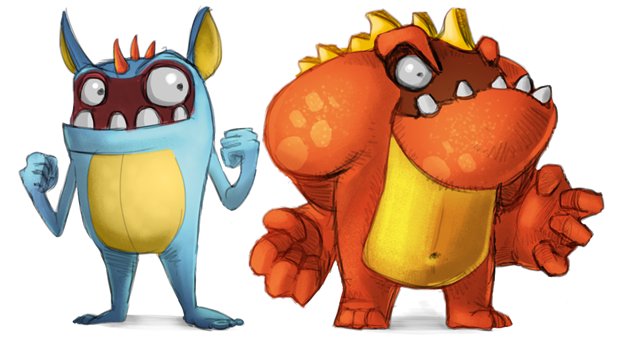Core members of the Banjo-Kazooie teamcreate ambitious startup, Playtonic

More than a decade after its sale to Microsoft, little tangible evidence now remains of the ’90s golden age of Twycross veteran Rare. With most of its IP shelved in favour of Kinect games, the former creator of charismatic shooters and platformers is almost unrecognisable from the days when GoldenEye 007 ruled the multiplayer scene.
One ensemble of Rare old guard has pledged to reclaim what was lost in that $375 million acquisition. The six full-time employees of Derby-based startup Playtonic spent a combined 120 years at the studio, and now boast ambitions to create the type of games they might have made had the keys not been handed over to Marc Whitten in 2002.
“Imagine there’s an alternative timeline where Rare became independent instead of being bought by Microsoft. What would that company be like? What would it have gone on to become? That’s our ambition,” says Gavin Price, one of the designers of Viva Piñata and the man spearheading the new company.
“Rare as it is now with Microsoft is all right. I had some great times. But our aim is to make some really cracking games in the style that we used to make them, not focusing just on certain types of games, but how we make them – that was unique to Rare and we know how we did it.
“I’ve wanted to do this for absolutely ages. I’ve been convinced there should be a classic Rare team somewhere making these old-style Rare games. It was just a case of waiting until the right people became available.”

His moment arrived in the aftermath of Rare’s latest restructure, which saw some of Rare’s remaining elders – including Price himself – cut in a self-claimed methodology change. Another casualty was 25-year veteran Chris Sutherland, who was lead programmer on Donkey Kong Country and the Banjo-Kazooie games. Artist Steve Mayles – creator of Banjo, Kazooie and other characters – left shortly after, and both soon found Price on the end of phone.
The trio secured three others to form Playtonic: Banjo-Kazooie environment artist Steven Hurst, Donkey Kong Country 3 and Kameo art lead Mark Stevenson and software engineer Jens Restemeier, who worked on Perfect Dark Zero. In addition, composer Grant Kirkhope has pledged to support Playtonic’s projects.
Weekly digests, tales from the communities you love, and more
The group’s plan is to build a proof-of-concept demo and later upscale to an “N64-size” team of between ten and 15 staff, for which Price claims he already has even more “well known” former Rare employees lined up.
Unsurprisingly, Playtonic’s first project will be familiar to fans of the group’s previous work. In Price’s own words: “Without giving the game away, I think it’s pretty obvious what kind of game we’re making from the history of the team. We consider it a spiritual successor to Banjo-Kazooie. We want to make a game where you control a fun character, learn new skills, add some new twists to the genre, and also listen to Grant’s tunes!”
Talk of a spiritual successor emerged among some former team members once before back in 2012, but Price stresses that the latest initiative has real substance. “Last time it was a pub conversation – nothing was ever acted upon. This time, we’ve started work on the game, we’ve got funding in place to support us and we’ve got a longterm business plan,” he says. “There’s been so much pent-up passion for doing something like this, because we’ve all been sat on a lot of these ideas since Banjo-Tooie came out.”

Among the team, there’s a mutual desire to recapture the autonomy that these developers claim was eventually lost at their previous employer. “For me, the appeal is that I’ll be able to create characters for a game myself again, creating a whole chain of animation,” Mayles says, “whereas at Rare now, you’re just a small cog… You have to filter through three of four different people before something is approved.”
For Sutherland, it’s a chance to regain hands-on responsibilities. “The most important aspect will be the feel of the game and how it works,” he says. “I can spend hours tweaking numbers to make sure it feels right and fun to play. It should be fun to just run around. If you can nail that, then you’re on the right path.”
The spiritual successor – or simply Game 01, as it’s called internally – is described as Playtonic’s “first objective”, after which its ambition is to tackle new genres, but only if its brainstorms lead there naturally. It’s this kind of organic creativity, just like in the old days at Twycross, that the new Playtonic team wants to recapture.
“The remit for Rare as a firstparty studio was to do something that Microsoft really needed, as opposed to something that people wanted to make,” Price explains. “In my mind, I’ve been planning this new venture for three or four years. There are so many old Rare employees around that I thought we should be doing something for ourselves by now.”
Edge magazine was launched in 1993 with a mission to dig deep into the inner workings of the international videogame industry, quickly building a reputation for next-level analysis, features, interviews and reviews that holds fast nearly 30 years on.



